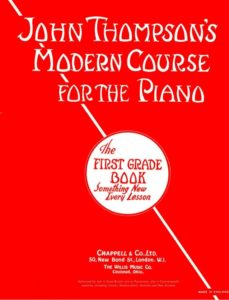“Swans on the Lake”
 My mom when I was seven or so bought from a friend or coworker an upright piano. They put it at the top of the stairs. I guess she learned how to play it when she was young. Sang in the choir. Was proud of her musical background and hoped, the idea was, to instill this in her kids. Shani, the eldest, was probably a lost cause, already into her teen years by then.
My mom when I was seven or so bought from a friend or coworker an upright piano. They put it at the top of the stairs. I guess she learned how to play it when she was young. Sang in the choir. Was proud of her musical background and hoped, the idea was, to instill this in her kids. Shani, the eldest, was probably a lost cause, already into her teen years by then.
But Jenny and I, we ate it up. The piano came with a ton of instructional books in the bench, most of them from the early-to-middle part of the twentieth century. Our friends the Soltyses up the street had an upright, too, and their bench was filled with books that had sheet music for current TV theme songs. I learned to play the “Cheers” theme by myself, though I feel like Jenny learned it before I did and was better at mastering it.
At any rate, the first song I ever taught myself to play with both hands at once—and if you want your children to learn how to read music, put a bunch of early-level piano instruction manuals in your piano and keep those idiots bored to tears on summer afternoons—was this one, “Swans on the Lake”, from the John Thompson instruction manual. I’m pretty sure it’s Grade I of a V-grade series.
Here are the lyrics, which until I found them online had only sketchily been running through my head all day:
Stately as princes the swans part the lilies and glide,
under the willows.
Are they enchanted men soon to be free again here,
under the willows?
Oh how I would like to be
here when the fairy wand
touches the leader and
changes his looks!
Would he be handsome and brave as the heroes that live
hidden in my fairy books?
It’s a dumb song, right? But in many ways it’s my ur-song. And if you know me, go ahead and Freud-up the whole thing to say A-ha! No wonder! and we’ll call it a late-spring’s eve.